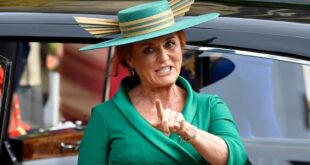Companies
Massive savings but uncertainty ahead as energy cap limited to six months
The government will be hoping that gas prices stay subdued despite months of warnings of winter shortages, after it cut back the scope of the energy price cap significantly. New chancellor Jeremy Hunt said the policy would be in place for six months only, potentially saving tens of billions of pounds but also raising the risk of high prices sending bills skyrocketing both for businesses and domestic users later next year. The government had previously been on the hook for a bill of up to £150bn across two years, depending on power prices.
Hunt said after six months in place, the cap would be dropped for a “new approach that will cost the taxpayer significantly less than planned”. He said it would not be responsible to “continue exposing public finances to unlimited volatility in international gas prices”. A replacement scheme would be more targeted, he said, pointing to a means-tested option, while reducing demand would also be a focus point.
This month prices in Europe have actually dropped back as demand reduction plans kick in and warmer weather has kept heating turned off. Gas storage levels are higher than forecast as well, at 91 per cent of capacity, pushing prices down. AH
Hargreaves Lansdown boss retiring
As retail investors look to tighten their belts and slow down share buying activity, it’s platforms like Hargreaves Lansdown (HL) that feel it most keenly. While its funds business is a bigger segment in terms of revenue, the company is a key host for UK trading activity. In a trading statement published on Monday, Hargreaves said client growth had slowed in the September quarter, as well as net new funds. But sales went up, driven by higher interest rates on the platform’s cash holdings.
It’s with this mixed bag that chief executive Chris Hill has decided to retire after six years in the job. This year he launched a significant strategic shift, in which the company will invest £175mn over the next four years to upgrade its technology and expand its financial advice offering. “He is leaving HL as a stronger company, with a clearly defined strategy that the board fully supports,” said chair Deanna Oppenheimer.
The company’s shares were down 8 per cent on the trading update and Hill news. AH
Asos amending debt covenants
After weekend reports that an Asos (ASC) credit insurer has slashed its insurance cover for the company’s suppliers, the fast-fashion retailer said that it is almost done with agreeing changes to the debt covenants in its revolving credit facility (a facility which runs to July 2024).
The company said that this will give it “significantly increased financial flexibility” and that it “retains a strong liquidity position”.
Asos is due to release full-year results this Wednesday. Investors will be hoping for a better market reaction, with the shares down by 11 per cent this morning on the back of the update. CA
Made.com asks for firm offers
Home furniture retailer Made.com (MADE), the IPO flop which listed last year, said it has invited several interested parties to deliver firm offers for the company by the end of this month. This could include a takeover offer. The company said that “any firm offer would require interim financing to be put in place at the time that firm offers are expected”.
Made’s shares were up by a quarter this morning but are down by 94 per cent year-to-date. A profit warning in July was followed by the withdrawal of full-year guidance. The company said last month that it wouldn’t be able to raise enough equity on the public markets and put itself up for sale. CA
Avon calling for another Ultra exec
Avon Protection (AVON) has recruited Ultra Electronics’ chief financial officer Jos Sclater as its new chief executive.
Avon’s company’s former chief executive, Paul McDonald, stepped down from his post at the end of September. Chair Bruce Thompson has taken on an executive role for the interim period. Sclater is the second senior executive to join Avon from Ultra this year. In March, Ultra’s former president for strategy and corporate development, Rich Cashin, became its chief financial officer.
Avon has shaken up its management team following a tumultuous 12-month period, during which the company announced a winding down of its body armour business after products failed US military tests. Its shares were up 2 per cent on Monday but are down 48 per cent over the past year. Ultra, meanwhile, has been bought by competitor Cobham, which is owned by US-based private equity firm Advent International. MF
RM issues profit warning
Shares in educational resource provider RM (RM.) have fallen by 28 per cent in the wake of a profit warning.
RM’s resources arm – which generates more than half of group sales – has been impacted by a botched IT project, which has caused warehouse inefficiencies and lower customer numbers. As a result, operating profit in the year to 30 November will be “significantly lower than forecast”. The IT programme has also caused net debt to increase slightly.
Management stressed that remediation plans are in place to reduce the order backlog to normal levels, but said shipment volumes still lag behind expected levels. JS
Cevian sells down Vodafone stake
There will be some pondering to do at Vodafone (VOD) after it became clear that Swedish activist investor Cevian has significantly sold down its stake in the telecoms company, as reported in the Financial Times. Whether that marks a change in tone is difficult to quantify but Cevian had previously voiced its concerns over the company’s operational direction, regularly arguing to management that Vodafone should be selling off low margin businesses and concentrating on its core markets. JH.
Earnings ahoy
The week kicks off with Bank of America, which follows on the heels of Friday’s updates from its Wall Street peers. Analysts expect Bank of America’s third-quarter profit to fall nearly 14 per cent, with growth in the consumer division estimated to partially offset a sharp fall in advisory fees. Investors are also watching for an increase in loan loss provisions. Shares have declined by around 35 per cent this year.
Netflix earnings will be the highlight on Tuesday. The company is struggling with falling subscriber numbers and a pivot to the way it delivers content. The company has posted two straight quarters of falling subs, losing a million last quarter alone. Management forecast 1m net adds this quarter. Shares in Netflix are down 63% YTD but have recovered from their summer lows a bit.
Netflix is due to launch a lower-cost, ad-supported tier in November. Bank of America analysts stuck with their underperform rating ahead of earnings: “We think Netflix’s pivot to AVOD (ad video on demand) is continuing to come across as a bit rushed.” There are also concerns that top-tier subscribers might level down into the cheaper ad tier during a recession, which would further drag on average revenue per user (ARPU).
But not everyone is downbeat. Upgrading the stock to overweight with a price target of $283, Atlantic Equities said the ad-supported business “could be extremely material and do not believe the benefit is currently reflected in consensus”. Evercore ISI and Oppenheimer also upgraded the stock to outperform in anticipation of the ad-supported business.
Tesla updates the market on Wednesday with the shares close to their YTD lows. Deliveries fell a bit flat in the third quarter, missing analyst expectations, though the 42 per cent jump to 343,830 vehicles was still a record high. Management blamed logistics problems and insist that demand remains very strong. However, “We believe TSLA is passing through peak auto margins right now … Is Tesla experiencing demand destruction? Very likely, at the margin, although this would be reflected in … price declines in the months ahead,” noted Morgan Stanley’s Adam Jonas in a note to clients in which he cut his price target on the stock to $350.
Snap earnings come on Thursday. Back in July, earnings reports from Twitter and Snap sent shockwaves through the digital advertising world. Since then, Snap has been cutting staff numbers drastically and scaling back its ambitions.
In August Snap slashed its global headcount by a fifth and revealed its revenue growth had declined to the slowest since going public; down to 8 per cent from around 13 per cent in Q2. During that quarter, revenues rose to $1.11bn as daily active users rose 18% to 347m, but net losses widened to $422m. Shares tumbled on 25 per cent on the earnings release and are down about three-quarters YTD.
Source link

